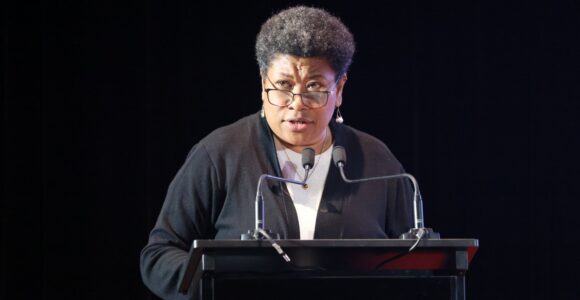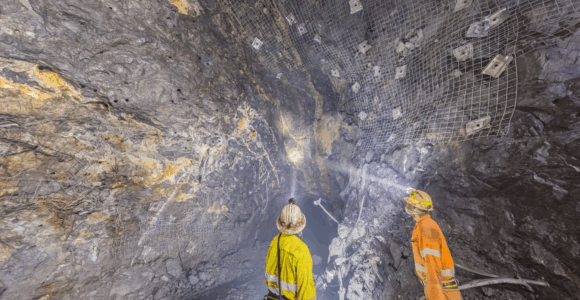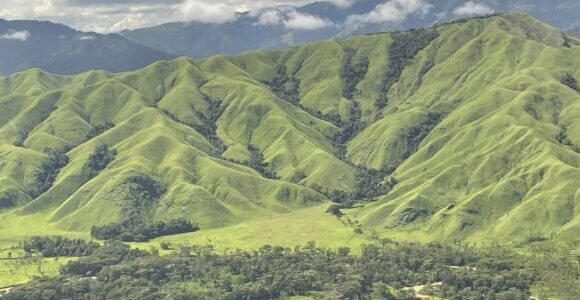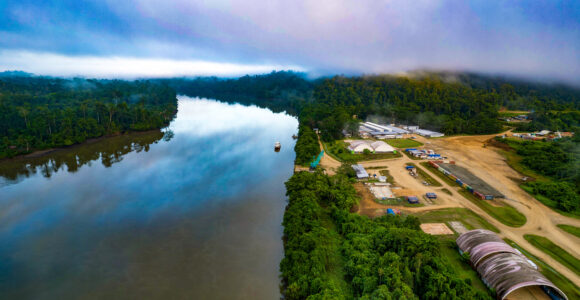Wafi-Golpu JV explains its deep sea waste disposal plan
The Wafi-Golpu Joint Venture has released new information on its proposed DSTP method of tailings disposal for the planned Wafi-Golpu mine in Papua New Guinea. The move is designed to allay environmental concerns, including those expressed by Morobe Governor Ginson Saonu.
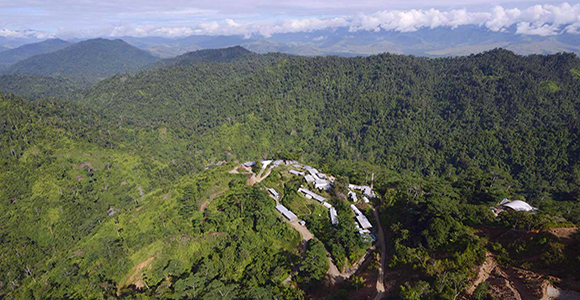
Wafi-Golpu is a joint venture between Newcrest Mining Limited and Harmony Gold Mining Company Limited. Credit: Wafi-Golpu Joint Venture
The Wafi-Golpu Joint Venture (WGJV) has issued a fact sheet and explainer videos on its website arguing that the Deep Sea Tailings Placement (DSTP) technique is the best option for its mining project, and allaying environmental concerns.
The project recently received an Environmental Permit, a necessary step towards it receiving a special mining licence.
‘The WGJV has studied tailings management solutions for the Wafi-Golpu Project according to international best practice,’ the report says. ‘These studies have been independently verified as being in accordance with appropriate industry professional standards.’
It says the proposal meets standards set out by the International Council of Mining and Metals (ICMM) and the International Finance Corporation (IFC).
The fact sheet notes that PNG has very deep water close to the coast, which it claims makes the method feasible: ‘the Markham Canyon in the Huon Gulf is one of the world’s deepest near-coastline marine canyons.’
It adds that PNG’s high rainfall and frequent seismic activity make on-land options more risky.
‘The tailings pipeline through Lae poses no specific harm to the community and is similar to the existing buried sewerage and infrastructure pipelines beneath the road network.’
‘The Markham Canyon is an ideal location for DSTP as it forms a continuation of the Markham River and transports significant amounts of natural river sediment into very deep water. The amount of tailings contributed to the Huon Gulf will form less than 20 per cent of the existing natural sedimentation.
‘The Markham Canyon does not host high biodiversity or fisheries because of the significant natural sediment transport down this conduit to very deep water, including through regular submarine landslide events that scour the canyon.’
The fact sheet claims the DSTP system is not predicted to affect people’s livelihoods.
‘The EIS (Environmental Impact Studies) predict no effect on the coastal environment, productive surface waters, community health or fisheries. The tailings pipeline through Lae poses no specific harm to the community and is similar to the existing buried sewerage and infrastructure pipelines beneath the road network. The Concentrate Storage Facilitate at the Port of Lae has a purpose-built water treatment plant to achieve PNG water quality criteria at the point of discharge.’
Objections
The Governor of Morobe Province, Ginson Saonu, said in a statement that he has concerns over the use of DSTP to get rid of waste from the proposed Wafi-Golpu mine.
‘We are not against the mine. But we reject DSTP. We are convinced that the scientific evidence that points to poisonous and destructive waste being dumped – as “redflagged” in the Reviews organized by CEPA (Conservation and Environment Protection Agency) – are the correct findings.
‘We do not believe, and do not accept, that the so-called consultations held by or with the people along the coast are representative of persons who truly know the meaning and extent of what the DSTP proposes to do – that is, to poison their livelihood.’
‘Our concerns are not centred on profit. Our concerns arise from the fact that dumping of waste into the Huon Gulf will poison the fisheries.’
Saonu said the Morobe government will challenge the legality of a pipeline to deposit tailings into the Huon Gulf.
‘We are prepared to take the matter internationally if forced to do so. Our concerns are not centred on profit. Our concerns arise from the fact that dumping of waste into the Huon Gulf will poison the fisheries.
‘The livelihood of persons living from Siassi, Finschafen along the coast to Morobe Patrol Post will be profoundly affected. It is not a risk that our people are prepared to take lying down. The possibility of a repeat of the Basamuk experience has already been forecast.’
Potential delay?
Last month, PNG’s Mining Minister Johnson Tuke suggested a special mining licence for Wafi-Golpu could be issued by the end of July or early August. However, legal challenges have the potential to affect such a timeline substantially.
In May 2019, legal proceedings brought by the Morobe government effectively put on hold all negotiations related to the project until February 2020.



